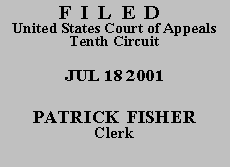

| UNITED STATES OF AMERICA,
Plaintiff-Appellee, v. JAMES L. FLYNN, Defendant-Appellant. |
|
James L. Flynn pled guilty pursuant to a plea agreement to conspiracy to distribute in excess of one kilogram of a mixture or substance containing a detectable amount of methamphetamine, in violation of 21 U.S.C. § 846. Mr. Flynn's adjusted offense level was 39 and his criminal history level was I, for a sentencing range under the guidelines of 262 to 327 months.
During the sentencing hearing, Mr. Flynn orally moved to withdraw his guilty plea. He indicated that the wanted to withdraw his plea because he believed he was going to receive a sentence greater than he thought he would receive at the time he pled guilty. The district court denied the motion.
Mr. Flynn also filed a motion for a discretionary downward departure on the basis of mental disability, based upon § 5K2.13 of the sentencing guidelines. U.S. Sentencing Guidelines Manual (U.S.S.G.) § 5K2.13 (1998). The district court declined to depart downward.
Mr. Flynn's counsel has filed a brief pursuant to Anders v. California, 386 U.S. 738 (1967), and has moved for leave to withdraw as counsel. For the reasons set out below, we grant counsel's motion to withdraw and dismiss the appeal.
Anders holds that if counsel finds a case to be wholly frivolous after conscientious examination, he may so advise the court and request permission to withdraw. Counsel must also submit to the court a brief referring to anything in the record arguably supportive of the appeal. The brief is then served upon the client, who may then raise any point he chooses, and the court thereafter undertakes a complete examination of all proceedings and decides whether the appeal is in fact frivolous. If it so finds, it may grant counsel's request to withdraw and dismiss the appeal. See id. at 744. Mr. Flynn was provided with a copy of counsel's brief and he has not filed additional material with this court.
In his Anders brief, counsel raised two potential appealable issues for our review: whether the court properly denied Mr. Flynn's motion to withdraw his plea and whether the court properly denied Mr. Flynn's motion for a downward departure due to significantly reduced mental capacity pursuant to U.S.S.G. § 5K2.13. Counsel concedes that both of these issues lack merit.
The Rules of Criminal Procedure allow a defendant to withdraw a guilty plea before sentence is imposed, if he shows "any fair and just reason." Fed. R. Crim. P. 32(e). We review the denial of the defendant's motion to withdraw for an abuse of discretion. United States v. Hickok, 907 F.2d 983, 984 (10th Cir. 1990).
At sentencing, Mr. Flynn argued that he should be allowed to withdraw his plea because he misunderstood the amount of time he might get for the offense. App. to Anders Br. at 69. The plea agreement Mr. Flynn signed, however, advised him that a guilty plea could subject him to a mandatory sentence of not less than ten years and a maximum of life imprisonment. See R. Vol. I, Doc. 272, at 2. It also instructed him that the sentence he would receive was solely within the control of the judge. See id. at 4. Additionally, the district court advised Mr. Flynn at the change of plea hearing that it would not be able to determine his guideline sentence until after the presentence report had been completed, and that the sentence imposed could be different from the estimate his attorney had provided. App. to Anders Br. at 78-79.
"A defendant's dissatisfaction with the length of his sentence generally is insufficient reason to withdraw a plea." United States v. Elias, 937 F.2d 1514, 1520 (10th Cir. 1991). We note that Mr. Flynn does not assert his innocence. He merely complains that his understanding of his attorney's estimate of his sentence was different than the sentence he actually received. The district court weighed the factors pertinent to withdrawal of a guilty plea, see Hickok, 907 F.2d at 985 n.2, and determined that Mr. Flynn failed to show a fair and just reason for withdrawing his plea. We cannot say that it abused its discretion in denying his motion.
The district court also denied Mr. Flynn's motion for a discretionary downward departure. We lack jurisdiction to review this decision, however. United States v. Castillo, 140 F.3d 874, 887 (10th Cir. 1998).
After a careful review of the entire proceedings, we conclude that the record establishes no ground for appeal. We GRANT counsel's request to withdraw and DISMISS the appeal.
Entered for the Court
Chief Judge
*. This order and judgment is not binding precedent, except under the doctrines of law of the case, res judicata, and collateral estoppel. The court generally disfavors the citation of orders and judgments; nevertheless, an order and judgment may be cited under the terms and conditions of 10th Cir. R. 36.3.